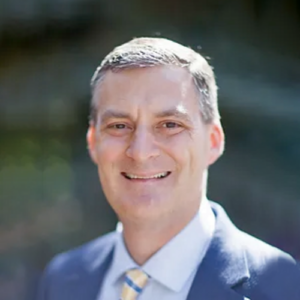We are grateful for the opportunity to present this special issue of ChinaSource Quarterly on the Catholic Church in China. We thank the ChinaSource editorial team and the journal’s readers for recognizing the importance of the topic, and the many experts who contributed articles.
Catholics in China today, like their fellow Christians and believers in other religions or spiritual practices, face many challenges, some of which remind them of the difficulties of past times, and some of which are new. As is well known, since at least 2015, Chinese authorities have tightened control over religious groups through policies like the “Sinicization” of religions and the implementation of various measures requiring religious groups and personnel to register with authorities, to positively support the Chinese Communist Party and its policies, to prohibit youth from participating in religious activities, to curtail online activities, and to tolerate increasingly intrusive surveillance of their activities. High-tech surveillance includes cameras installed inside and outside of churches and other houses of worship, required registration of participants, and biometric data collection, such as facial recognition and more. Resistance to these demands, as well as attempts to avoid them by meeting in unregistered places such as house churches or “underground” churches (whether or not they are actually secret), has often brought believers into conflict with authorities.
These conflicts have been well documented in recent years by Protestant Christians; less so, it seems, or at least less has been published, by Catholics. With these contributions here we aim to fill in this gap to a modest degree, along with our review of a book with even more information on the current circumstances facing Catholics: People, Communities, and the Catholic Church in China, edited by Cindy Yik-yi Chu and Paul Mariani. The contributors here (and most of those in the book) are Catholics with deep experience in China and expertise in their fields.
Two historians set the stage. Cindy Yik-yi Chu describes the origins and work of the Maryknoll Sisters of St. Dominic, the first American Catholic women’s congregation to send missionaries to China, representative of the larger efforts of many Catholic congregations and missionaries who served in China at different times. Anthony E. Clark draws on years of experience interviewing Chinese Catholics and his deep excavation into archives, photos, and other rare materials, giving us a brief but focused look at the past few decades, and through them offering light on today’s unsettled reality for China’s Catholics under Xi Jinping’s rule and the controversial 2018 Sino-Vatican Agreement. Despite political difficulties, however, as Clark points out, Chinese Catholics persevere, often heroically, sometimes mindful of a phrase from Confucius: “Three armies can conquer a general, but the resolve of even a commoner cannot be taken away” (三軍可奪帥,匹夫不可奪志).
The 2018 Agreement and its effects are undoubtedly the biggest issue dominating the news about the Catholic Church in China since it was first signed, and then renewed in 2020 and 2022, and likely again in 2024. Much commentary has appeared both for and against it, including high-ranking Church leaders on both sides. The controversy raises difficulties common in diplomacy, such as where and when to compromise; the trustworthiness of the other side; and aiming to achieve short-term versus long-term goals. Aware of these currently pertinent issues, we decided to invite two contributors who take opposite views of the Agreement. Chiaretto Yan, a Catholic scholar, argues that the Agreement is a significant step that opens new possibilities in Sino-Vatican relations. On the other hand, Beatrice Leung, an expert on Sino-Vatican relations, argues that the Agreement not only has not been very effective, but has strengthened the Party’s hand of repression.
Despite the difficulties at the level of diplomacy, Chinese Catholics persevere in faith, attempting to build a new Christian culture in many fields. In the field of cultural studies, my article examines the contribution of Wu Jingxiong (吳經熊), or John C. H. Wu, toward synthesizing the best of China’s ancient humanistic thought with Christian spirituality, especially those Catholic saints who are mystically inclined. Fr. Anthony Chang turns our attention to the Church’s need to bear witness to the gift of God that is our natural environment, reminding us of our Christian responsibility to care for our common home, especially in light of Pope Francis’ landmark 2015 encyclical letter, Laudato Si.
Providing an overview to the issues affecting Catholics today, Fr. Michael Agliardo offers the perspective of an American Jesuit priest who is well versed in the history of the Church in China, and who has been privileged to converse with Catholics of many backgrounds, including Chinese laypeople and clergy, and bishops and scholars around the world who are involved with the Church in China. In addition, we have a special contribution on the challenging and complex situation facing the unregistered, or underground, Catholics today, written by an anonymous Catholic friend who comes from that community.
We hope that you come away from reading these articles with a greater sense of the common faith in Christ and spiritual family ties that unite all Christians in China, and with a deeper understanding of the unique circumstances and contributions facing China’s Catholics. Above all, we hope you will see that Chinese Catholics live with a strong awareness of Our Lord Jesus’s presence with them amidst many challenges, that they live in hope in exceedingly challenging times, and they remain faithful to him in ways that can inspire us all. We welcome any questions or comments to enhance our fruitful dialogue that may help us to support and learn from our Catholic brothers and sisters in China.
Image credit: Joann Pittman, St. Joseph Church in Beijing, also known as Wangfujing Church.

John A. Lindblom
John Lindblom received his MA in International Studies (China) at the Henry M. Jackson School at the University of Washington, with a focus on the Catholic Church in China. He received his PhD in World Religions World Church (theology) at the University of Notre Dame. His research examines connections between …View Full Bio